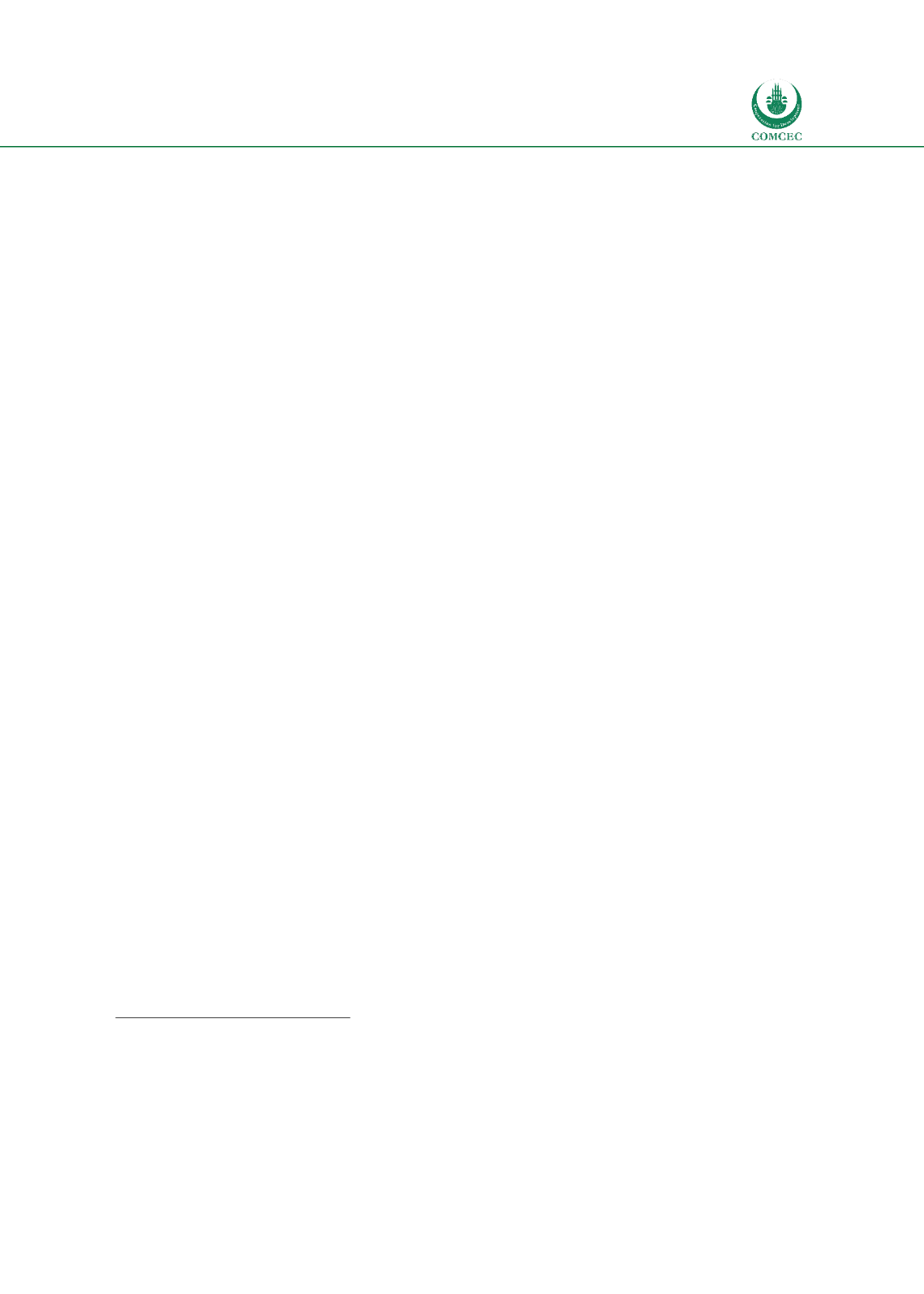

National and Global Islamic Financial Architecture:
Prolems and Possible Solutions for the OIC Member Countries
59
any steps to implement IFSB guidelines and principles for Islamic banks and Islamic non-bank
financial institutions. Under Strategic Goal:2 and Objective No. 2.10 in the Second Strategic
Plan (2015-2019) of Bangladesh Bank, BB has set a target to improvise its Islamic Banking
Regulation framework in line with IFSB and AAOIFI Standards by the year 2019 to help the
Islamic banking sector (BB 2015b: 9).
The Insurance Development and Regulatory Authority (IDRA) established by the Insurance
Development and Regulatory Authority (IDRA) Act 2010 replaced the office of the Chief
Controller of Insurance as a regulatory body to control, guide and supervise the insurance
industry in Bangladesh. While a number of takaful companies exist, the regulations for the
insurance industry do not deal with the specific issues related to them. As a result, takaful
companies are facing difficulties as they have to follow the conventional insurance act and
regulations. For example, the regulatory requirement to invest 30% of the investable funds
with government securities and bonds makes compliance difficult for takaful companies due to
a lack of these instruments. While the government has issued Islamic bonds, their returns are
relatively low compared to their conventional counterparts.
20
Furthermore, the relatively
small number of Shariah-compliant companies in the stock market restricts investment
opportunities and returns. Thus, takaful operators cannot operate on a level playing field with
their conventional counterparts.
The Bangladesh Securities and Exchange Commission (BSEC) was established in 1993 as the
regulator of the country’s capital market through an enactment of the Securities and Exchange
Commission Act 1993 (amended in 2012). As a statutory body attached to the Ministry of
Finance, BSEC has overall responsibility to formulate and administer securities regulations.
There are no specific regulatory guidelines for sukuk or Islamic securities issued by the
Commission.
4.1.3.
Shariah
Governance Framework
Neither the financial laws nor the Bangladesh Bank Order 1972 make any provisions for BB to
deal with Shariah governance issues. As a result, BB does not have an apex Shariah Supervisory
Board nor does it play an active role in framing Shariah governance regimes for Islamic
financial institutions. However, the Guidelines for Islamic Banking 2009 issued by BB
addresses some Shariah related issues. It emphasizes promoting Shariah compliance of the
Islamic financial sector by strengthening the Shariah governance framework. Other than
providing advice on Shariah related issues arising in financial businesses to BB and financial
institutions, Section 3 of the guidelines identifies the functions of the Shariah Supervisory
Committee (SSC). The section on Responsibility for Shariah Compliance in BB (2009) make the
board of directors of the respective banks responsible for ensuring that the activities of the
banks and their products are Shariah compliant by forming an independent SSC with
experienced and knowledgeable persons in Islamic jurisprudence. It also provides fit and
proper criteria for selection of members of the SSC which include relevant educational
20
While the government securities provide interest from 8% to 10% depending on the period, the Bangladesh Government
Islami Investment Bond (BGIIB) issued by the Central Bank give Islami insurance companies profits between 2% to 4% only.
The investment returns of Islami insurance companies are therefore 60% to 75% less than their competitors in the
conventional insurance from compulsory investment portfolio. Furthermore, the funds which are invested in Shariah-
compliant Islamic bonds are reinvested by the Central Bank to Islami banks of the country, which hold excess cash liquidity
and are seldom in need to buy Islami bonds. Therefore, a major portion of the fund of BGIIB remains idle without investment.
This is a real financial disadvantage for the Islami insurance companies.
















